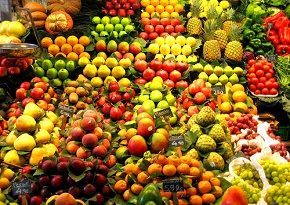Scientists Find The Only Way Kids Will Eat Their Veggies Is To Slather Them With Calories

Getting children to eat the recommended amount of vegetables can be a daunting task for any parent, especially with all the unhealthy alternatives offered today. According to a study conducted by the Center for Childhood Obesity Research at Pennsylvania State University, giving a child the option of a low-fat dipping sauce will urge them to eat more vegetables.
"Food and nutrition practitioners can help the staff at childcare centers, kindergartens, and elementary schools enhance children's acceptance and consumption of vegetables by pairing vegetables with small portions of reduced-fat, herb-flavored dips during snack and meal times," lead researcher Jennifer Savage, Ph.D., associate director of the Center for Childhood Obesity Research at PSU, stated in the report.
Data produced by the Centers for Disease Control and Prevention shows that fruits and vegetables are a perfect source for essential nutrients such as vitamins, fiber, and potassium. Diets rich in fruits and vegetables have been linked to a lowered risk of cardiovascular disease.
Savage and her colleagues from PSU set up two different scenarios that tracked the responses of 61 preschoolers. The research team used six different raw vegetables and five types of dipping sauce including reduced-fat plain, herb, garlic, pizza, and ranch.
In the first experiment, 34 participants were asked to taste a desirable vegetable, a vegetable they weren't fond of, and one they refused, coupled with either a low-fat plain dip or an herb-flavored dip. Children in the first experiment were three times more likely to reject the vegetable if it wasn't accompanied with a dip. The majority of preschoolers preferred the herb-flavored dip to the plain one.
In the second experiment, 27 participants were asked to taste the two vegetables least favored by children in that age group, celery and squash, with and without a dipping sauce. While preschoolers rejected the two vegetables on their own, over half of them were more inclined to try them when given the option of a dipping sauce.
The CDC's recommendations for the adequate amount of vegetables to consume on a daily basis vary by age and exercise routine. Children around the age of five who get between 30 to 60 minutes of physical activity should take in one-and-a-half cups of vegetables a day or 1,500 calories.
The results of this study were published in the May 22 edition of Journal of the Academy of Nutrition and Dietetics.
Source: Savage J, Peterson J, Marini M, Bordi P, Birch L. The Addition of a Plain or Herb-Flavored Reduced-Fat Dip Is Associated with Improved Preschoolers' Intake of Vegetables. Journal of the Academy of Nutrition and Dietetics. 2013.
Published by Medicaldaily.com



























